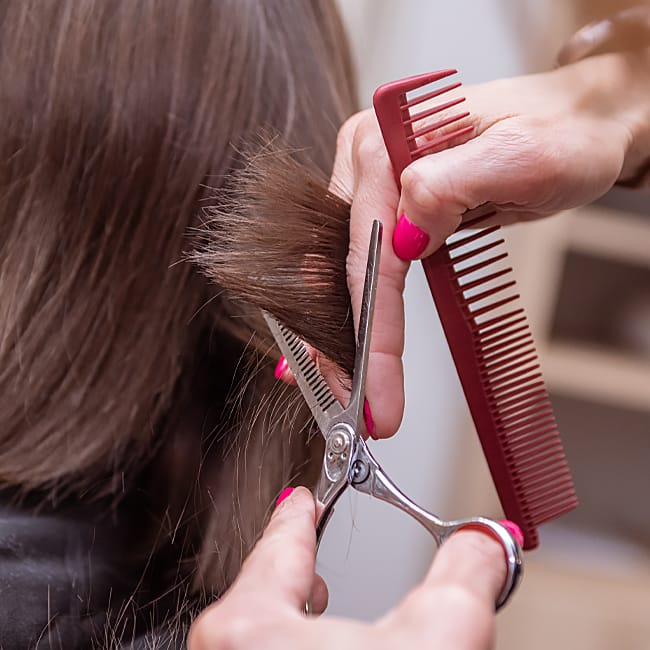Symptoms and signs of menopause are often spoken about in hushed tones. You may know about the hot flashes, weight gain, headaches, and recurrent urinary tract infections. You may also know that no two women experience menopause the same exact way and you may exhibit a number of symptoms or none at all. But one thing that is more common is changes to the skin. Women tend to lose about 30 percent of their collagen during menopause (afterward, collagen drops at a much slower rate). Since collagen is a major factor in keeping the skin smooth, healthy looking, and vibrant, this drop can result in the appearance of fine lines and wrinkles, loss of volume, some sagging, and dryness.
This is an important time to make sure your diet is healthy and balanced. Many foods can actually promote collagen production, too, which makes them a great choice if you are concerned about potential changes in your skin. Speak to your dermatologist about products (like retinol) that can help boost collagen, as well as any non-invasive procedures that can help — and consider adding these foods to your diet.


Organ Meats
Hear us out: we know they’re still slightly unconventional for some people, but organ meat like chicken liver and kidneys contain a natural source of collagen protein. Most of the meat we consume in the West tends to be muscle meat, which isn’t high in collagen. If you can add this food to your diet you will benefit not only from additional collagen, but also from copper, protein, magnesium, and vitamins B12 and folate.

Dark Chocolate
Of course you can and should continue having dessert. Choosing dark chocolate over milk chocolate provides nutritional benefits, though, including protein, magnesium, iron, copper, and zinc. It also contains flavonoids and can manganese, which can boost collagen production. So you can enjoy that sweet treat and improve your skin while you’re doing it.

Bone Broth
Bone broth has earned the title of official collagen-building food, and it may be the one you think of when you consider adding different foods to your diet. This food is naturally high in unprocessed collagen and is also a good source of protein and amino acids and has numerous gut health benefits. You can make it the backbone of your favorite soup, of course, but can also sip it throughout the day in addition to water.

Citrus Fruits
Bring on the oranges, lemons, and limes — citrus fruits contain an abundance of vitamin C, which is a crucial nutrient that helps build collagen. Even if you aren’t a fan of eating oranges whole, you can get your share of citrus goodness by squeezing lemon or lime over a variety of dishes like chicken and veggies.

Shellfish
Shellfish, including raw oysters and clams, contain an abundance of collagen-building amino acids, as well as copper and zinc — two nutrients that work hand-in-hand to activate the molecules needed for collagen synthesis. Not only are they are a culinary treat, but they’re so nutritious — a great reason to consider eating more of them at home, as well as at your favorite seafood restaurant.

Beef
Beef collagen (also called bovine collagen) contains two types of collagen — collagen I and III — which are considered the best types for muscle recovery and workout gains. But the nutrients found in beef can also help benefit your skin and prevent bone loss, which becomes especially important as we age. If you are open to eating more red meat, adding beef to your diet once or twice a week can help support your skin health.
Remember: if you have dietary concerns, always check with your doctor before beginning a new diet that incorporates unfamiliar foods.


























